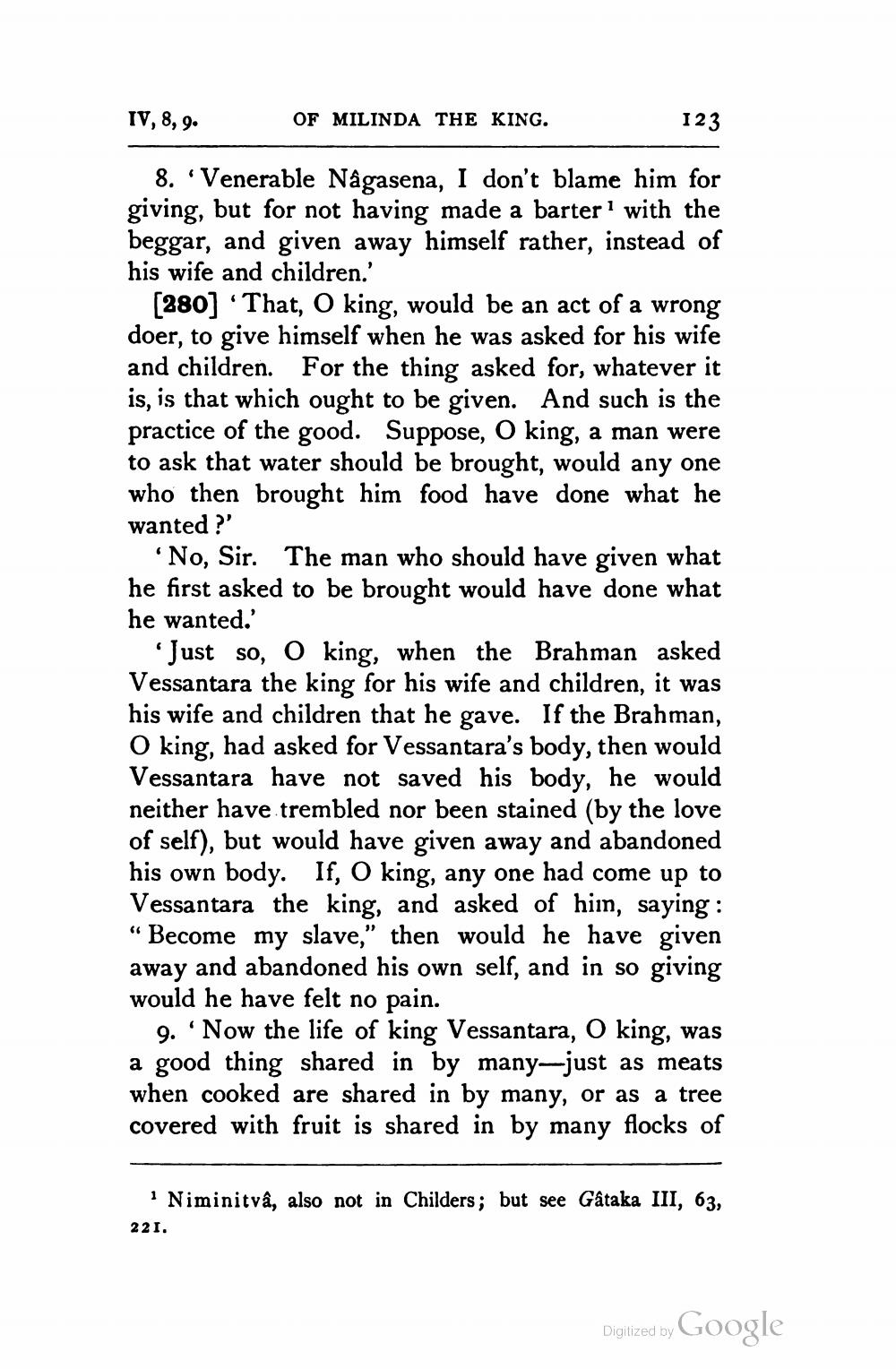________________
IV, 8, 9.
8. 'Venerable Nâgasena, I don't blame him for giving, but for not having made a barter1 with the beggar, and given away himself rather, instead of his wife and children.'
OF MILINDA THE KING.
[280] That, O king, would be an act of a wrong doer, to give himself when he was asked for his wife and children. For the thing asked for, whatever it is, is that which ought to be given. And such is the practice of the good. Suppose, O king, a man were to ask that water should be brought, would any one who then brought him food have done what he wanted?'
123
'No, Sir. The man who should have given what he first asked to be brought would have done what he wanted.'
'Just so, O king, when the Brahman asked Vessantara the king for his wife and children, it was his wife and children that he gave. If the Brahman, O king, had asked for Vessantara's body, then would Vessantara have not saved his body, he would neither have trembled nor been stained (by the love of self), but would have given away and abandoned his own body. If, O king, any one had come up to Vessantara the king, and asked of him, saying: "Become my slave," then would he have given away and abandoned his own self, and in so giving would he have felt no pain.
9. Now the life of king Vessantara, O king, was a good thing shared in by many-just as meats when cooked are shared in by many, or as a tree covered with fruit is shared in by many flocks of
221.
Niminitvâ, also not in Childers; but see Gâtaka III, 63,
Digitized by
Google




